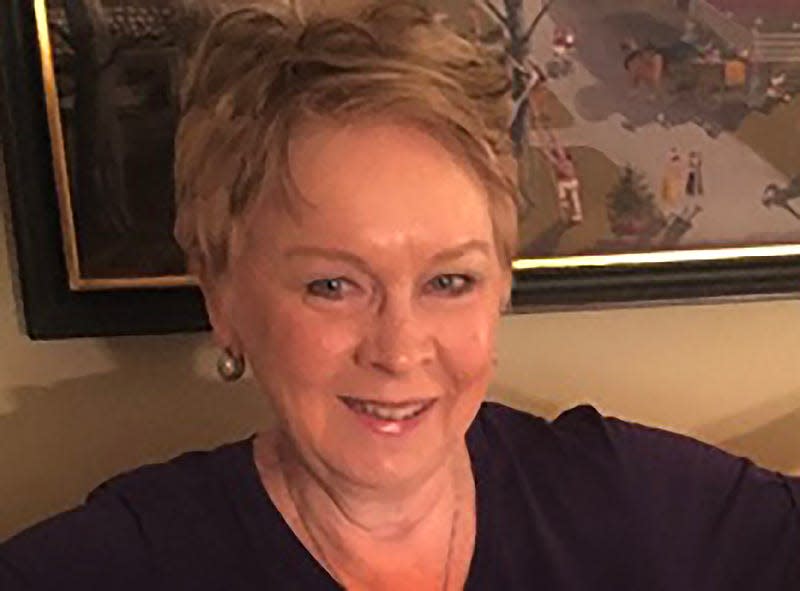First Person: Daughter pays tribute to her father, who was also a veteran and musician

I’m a baby boomer, born and raised in Linworth, that little speck on Route 161 cleverly named with the last syllable of Dublin and first of Worthington since it’s halfway between both.
I was raised on a street where my grandparents lived as well as my Aunt Iva and Uncle Ed, and across the railroad tracks from a house filled with cousins where I spent thousands of hours.
It was an era of innocence when millions of children were born after soldiers returned from World War II. It was a time when a “juvenile delinquent” was someone who didn’t do their homework until Sunday night after the church youth group met.
Summer guide: Columbus Summer Fun 2022: Our events guide to concerts, festivals, theater, arts and more
The ‘40s and ‘50s music contained lyrics that could be understood, created earworms, and caused your toes to tap.
On Saturday nights, parents would get a sitter, go to a dance at a nearby lodge hall where local dance bands played, guzzle a few beers with friends while the sing-alongs got louder, dance the boogie-woogie, then go home.
But my parents didn’t. That’s because my father, a deputy sheriff during the day, was one of the musicians whose every Saturday night was spent as one of the entertainers.
He was a piano player. Dad was one of those rare birds who could hear a tune once then repeat it perfectly with all the complicated chords and rhythms.
He had taken music lessons from his Uncle Roy who had the same gift of music, and after six lessons, Dad thought he had learned all he needed, and the lessons stopped.
And he pretty much had. With lightning speed he’d play “Twelfth Street Rag,” then slow the tempo for “Up the Lazy River,” “Twilight Time,” and “Five Foot Two, Eyes of Blue,” all of which he had heard once and perfectly replicated on the old “88.”
Marblehead Lighthouse: Travel: Sailors and visitors alike find Marblehead Lighthouse a shining beacon of beauty
During the war while Dad served overseas, the piano manufacturer, Steinway & Sons, was prohibited from building pianos due to metal and raw-material restrictions; however, in 1941, the company received a government request to create heavy-duty pianos that could be shipped via B-17s and dropped by parachute to troops below.
The pianos were without front legs and painted with camouflage colors. Nearly 5,000 of the so-called Victory Verticals were sent to several countries in an effort to lift the morale of those Yanks stationed so far away from home.
Dad’s 45th Ordnance Company was the recipient of one of those G.I. pianos, and Dad was the piano player. Handlers and repairers of heavy-duty artillery, they hauled their piano on their truck bed as they went from Scotland, England, North Africa, Italy, Anzio Beachhead, France and finally Nuremberg, Germany.
“My Gal Sal,” “Sentimental Journey,” “I’ll Be Home for Christmas,” and “Satin Doll” were some of his repertoire that he played when they were beyond earshot of the enemy.
I can only imagine the laughter, the cigarettes puffing, and dirty jokes.
Flag Day and Fathers’ Day are just a few days apart. I can’t think about those two dates without comparing how differently the WWII soldiers and current military listen to music and conduct military exercises.
As well, there are scores of military moms and dads serving at this very moment who would love to be home this Fathers’ Day to say goodbye to their ailing father, or hello to a new baby, or to be celebrated themselves.
For my father, though, if he were still living, this would be his 75th Father's’ Day. Daddy, I love you. Rest well and hang on tight because someday…“I’ll Be Seeing You.”
Sue Kuhn Melvin, 74, resides in Worthington.
Have an essay?
This article originally appeared on The Columbus Dispatch: Daughter pays tribute to father, a WWII veteran and music-maker

